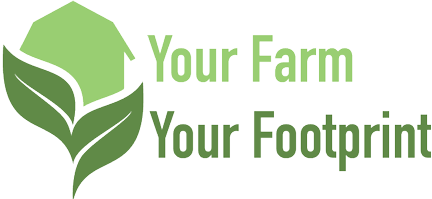Press Releases
Responsible drug use in animals: consumers look to producers...
March 27, 2020
FOR IMMEDIATE RELEASE
Contact: Shelly Mayer
800-947-7379
mail@pdpw.org
Archive of Press Releases: Press Release
Photo/logo for this press release: photo/logo
Responsible drug use in animals: consumers look to producers for stewardship
The livestock industry has been under scrutiny in recent years for how they determine standards for treating animals with antibiotics such as penicillin, according to Dr. Mike Apley, DVM, PhD. A professor of veterinary clinical sciences at the Kansas State University College of Veterinary Medicine, Apley reminded attendees of the Professional Dairy Producers® (PDPW) Virtual Business Conference that since the consumer is more engaged with how their food is produced, farmers need to be mindful of that when raising animals for market.
“The consumers care because they are the people buying our meat and other by-products that come from the animal,” Dr. Apley said. “We are being observed for how our farming practices affect human health because our farms are ultimately where most of their food products come from.”
Dr. Apley went on to say farmers are expected to offer preventative care in such a way that antibiotic treatment is not always necessary. When it is required, though, he emphasized the critical nature of practicing antimicrobial stewardship.
“Stewardship is important because we all want to ensure residue does not lead to resistant strains because of too much antibiotic use,” he said. “As herd operators, we have a responsibility for appropriate diagnostics and treatment of the disease or infection. If there’s not a non-antibiotic alternative, then the selection of how to apply treatment safely and effectively is imperative.”
The consumer market is expected to demand more records on the farms’ use of antibiotics on their animals, Dr. Apley said. He agreed their concerns about antimicrobial resistance are legitimate. He also reminded attendees it’s important for producers to work together with their veterinarian(s) in determining the best treatment for effective herd health.
“Resistance doesn’t necessarily mean there isn’t an effective treatment for the infection in the animal,” he said. “It just means you have to adjust the treatment. Fighting mastitis, e-coli pathogens in calves, or hoof rot all require action. It’s important to have several options available for treatment because there’s not a one-size-fits-all solution.”
Professional Dairy Producers® (PDPW) held the first-ever PDPW Virtual Business Conference March 18-19, 2020 in keeping with its commitment to presenting the 2020 annual business conference to its membership. PDPW is the nation's largest dairy producer-led organization of its kind, focusing on producer professionalism, stakeholder engagement and unified outreach to share ideas, solutions, resources and experiences that help dairy producers succeed.
FOR IMMEDIATE RELEASE
Contact: Shelly Mayer
800-947-7379
mail@pdpw.org
Archive of Press Releases: Press Release
Photo/logo for this press release: photo/logo
Responsible drug use in animals: consumers look to producers for stewardship
The livestock industry has been under scrutiny in recent years for how they determine standards for treating animals with antibiotics such as penicillin, according to Dr. Mike Apley, DVM, PhD. A professor of veterinary clinical sciences at the Kansas State University College of Veterinary Medicine, Apley reminded attendees of the Professional Dairy Producers® (PDPW) Virtual Business Conference that since the consumer is more engaged with how their food is produced, farmers need to be mindful of that when raising animals for market.
“The consumers care because they are the people buying our meat and other by-products that come from the animal,” Dr. Apley said. “We are being observed for how our farming practices affect human health because our farms are ultimately where most of their food products come from.”
Dr. Apley went on to say farmers are expected to offer preventative care in such a way that antibiotic treatment is not always necessary. When it is required, though, he emphasized the critical nature of practicing antimicrobial stewardship.
“Stewardship is important because we all want to ensure residue does not lead to resistant strains because of too much antibiotic use,” he said. “As herd operators, we have a responsibility for appropriate diagnostics and treatment of the disease or infection. If there’s not a non-antibiotic alternative, then the selection of how to apply treatment safely and effectively is imperative.”
The consumer market is expected to demand more records on the farms’ use of antibiotics on their animals, Dr. Apley said. He agreed their concerns about antimicrobial resistance are legitimate. He also reminded attendees it’s important for producers to work together with their veterinarian(s) in determining the best treatment for effective herd health.
“Resistance doesn’t necessarily mean there isn’t an effective treatment for the infection in the animal,” he said. “It just means you have to adjust the treatment. Fighting mastitis, e-coli pathogens in calves, or hoof rot all require action. It’s important to have several options available for treatment because there’s not a one-size-fits-all solution.”
Professional Dairy Producers® (PDPW) held the first-ever PDPW Virtual Business Conference March 18-19, 2020 in keeping with its commitment to presenting the 2020 annual business conference to its membership. PDPW is the nation's largest dairy producer-led organization of its kind, focusing on producer professionalism, stakeholder engagement and unified outreach to share ideas, solutions, resources and experiences that help dairy producers succeed.






